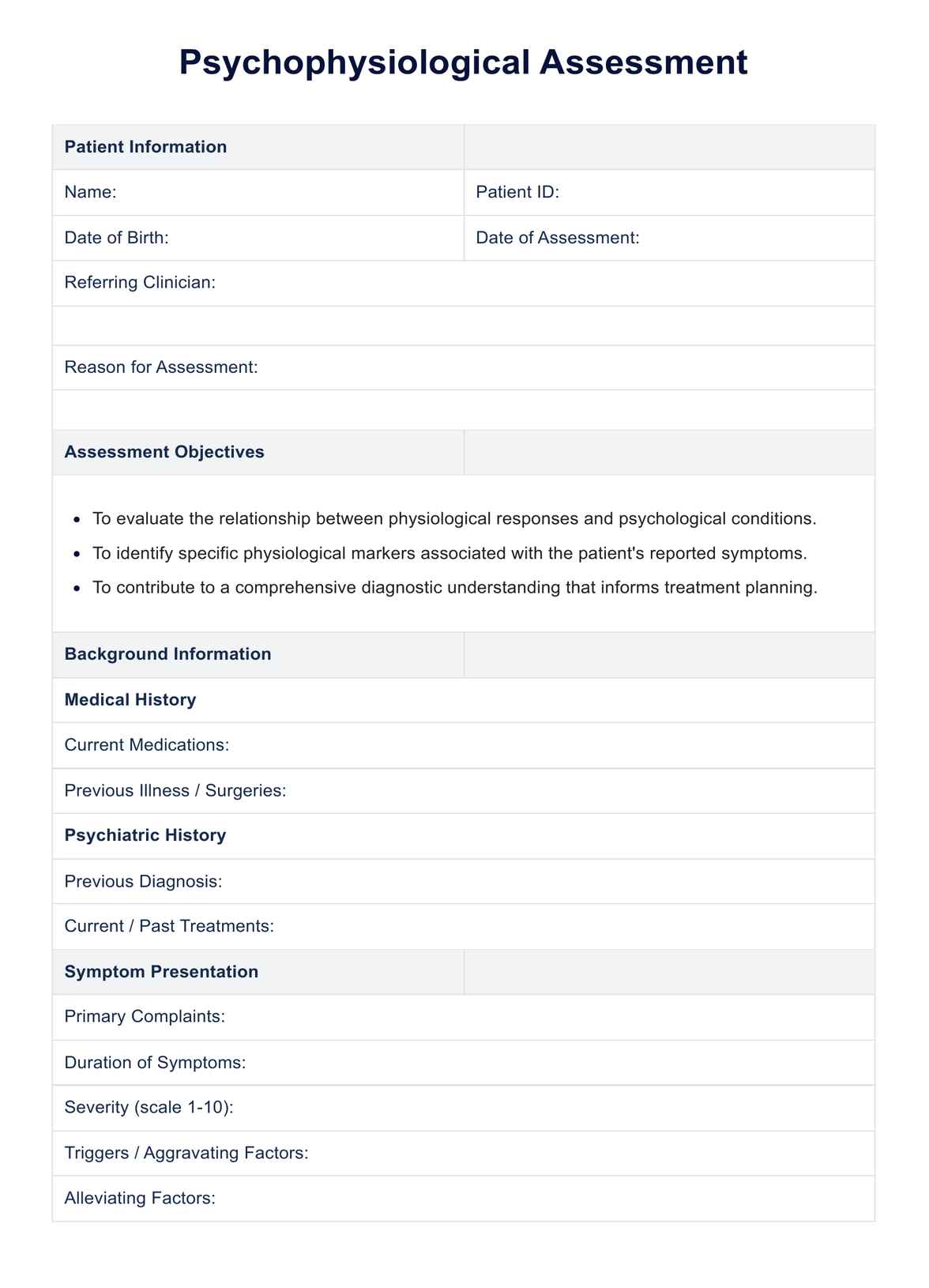Psychophysiological research employs various methods to explore the interactions between psychological processes and physiological responses. These methods include functional magnetic resonance imaging (fMRI) to track brain activity, electrocardiography (ECG) for heart rate analysis, electromyography (EMG) for muscle activity, and skin conductance measures to assess sweat gland activity related to stress or arousal.

Psychophysiological Assessment
Explore Psychophysiological Assessments with our free template. Understand the link between mental processes and physical responses. Download now.
Psychophysiological Assessment Template
Commonly asked questions
A common example of a psychophysiological response is the increased heart rate and perspiration experienced during a stressful situation. This reaction is part of the body's fight-or-flight response, illustrating how psychological stress (anticipating a threat) can trigger a cascade of physiological changes, preparing the body to confront or escape the perceived danger.
Psychophysiology measures the body's physiological responses to psychological processes. This includes monitoring heart rate variability, brain wave patterns, muscle tension, blood pressure, and other autonomic nervous system activities to understand how the body reacts to various mental states, emotions, and stress levels.
EHR and practice management software
Get started for free
*No credit card required
Free
$0/usd
Unlimited clients
Telehealth
1GB of storage
Client portal text
Automated billing and online payments











